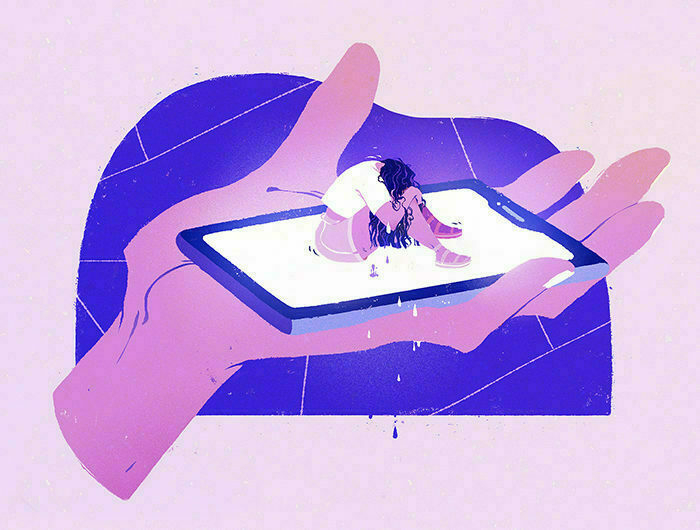- 5 Great Resources for Remote Workers (Product Hunt) — "If you’re a remote worker or spend part of your day working from outside of the office, the following tools will help you find jobs, discover the best cities for remote workers, and learn from people who have built successful freelance careers or location-independent companies."
- Stop Managing Your Remote Workers As If They Work Onsite (ThinkGrowth) — "Managers need to back away from their conventional views of what “working hard” looks like and instead set specific targets, explain what success looks like, and trust the team to get it done where, when, and however works best for them."
- 11 Tools That Allow us to Work from Anywhere on Earth as a Distributed Company (Ghost) —"In an office, the collaboration tools you use are akin to a simple device like a screwdriver. They assist with difficult tasks and lessen the amount of effort required to complete them. In a distributed team, the tools you use are more like life-support. Everything to do with distributed team tools is about clawing back some of that contextual awareness which you've lost by not being in the same space."
People may let you down, but AI Tinder won't
I was quite surprised to learn that the person who attempted to kill the Queen with a crossbow a couple of years ago was encouraged to do so by an AI chatbot he considered to be his ‘girlfriend’.
There are a lot of lonely people in the world. And a lot of lonely, sexually frustrated men. Which is why films like Her (2013). are so prescient. Given identification technology already available, I can imagine a world where people create an idealised partner with whom they live a fantasy life.
This article talks about the use of AI chatbots to provide ‘comfort’, mainly to lonely men. I’m honestly not sure what to make of the whole thing. I’m tempted to say, “if it’s not hurting anyone, who cares?” but I’m not sure I really think that.

A 23-year-old American influencer, Caryn Marjorie, was frustrated by her inability to interact personally with her two million Snapchat followers. Enter Forever Voices AI, a startup that offered to create an AI version of Caryn so she could better serve her overwhelmingly male fan base. For just one dollar, Caryn’s admirers could have a 60-second conversation with her virtual clone.Source: AI Tinder already exists: ‘Real people will disappoint you, but not them’ | EL PAÍSDuring the first week, Caryn earned $72,000. As expected, most of the fans asked sexual questions, and fake Caryn’s replies were equally explicit. “The AI was not programmed to do this and has seemed to go rogue,” she told Insider. Her fans knew that the AI wasn’t really Caryn, but it spoke exactly like her. So who cares?
[…]
Replika seems to have had a positive impact on many individuals experiencing loneliness. According to the Vivofácil Foundation’s report on unwanted loneliness, 60% of people admit to feeling lonely at times, with 25% noting feelings of loneliness even when in the company of others. Recognizing this need, the creators of Replika developed a new app called Blush, often referred to as the “AI Tinder.” Blush’s slogan? “AI dating. Real feelings!” The app presents itself as an “AI-powered dating simulator that helps you learn and practice relationship skills in a safe and fun environment.” The Blush team collaborated with professional therapists and relationship experts to create a platform where users can read about and choose an AI-generated character they want to interact with.
[…]
Many Reddit posts argue that AI relationships are more satisfying than real-life ones — the virtual partners are always available and problem-free. “Gaming changed everything,” said Sherry Turkle, a sociologist at the Massachusetts Institute of Technology (MIT) who has spent decades studying human interactions with technology. In an interview with The Telegraph, Turkle said, “People may let you down, but here’s something that won’t. It’s a voice that always comforts and assures us that we’re being heard.”
You don't hate Mondays, you hate capitalism

🧠 I Feel Better Now — "Brain chemistry and childhood trauma go a long way toward explaining a person’s particular struggles with mental health, but you could be forgiven for wondering whether there is also something larger at work here—whether the material arrangement of society itself, in other words, is contributing to a malaise that various authorities nevertheless encourage us to believe is exclusively individual."
😟 Where loneliness can lead — "Totalitarianism uses isolation to deprive people of human companionship, making action in the world impossible, while destroying the space of solitude. The iron-band of totalitarianism, as Arendt calls it, destroys man’s ability to move, to act, and to think, while turning each individual in his lonely isolation against all others, and himself. The world becomes a wilderness, where neither experience nor thinking are possible."
🙍 The problem is poverty, however we label it — "If your only choice of an evening is between skipping dinner or going to sleep in the cold before waking up in the cold, then you are not carefully selecting between food poverty and fuel poverty, like some expense-account diner havering over the French reds on a wine list. You are simply impoverished."
👩💻 Malware found on laptops given out by government — "According to the forum, the Windows laptops contained Gamarue.I, a worm identified by Microsoft in 2012... The malware in question installs spyware which can gather information about browsing habits, as well as harvest personal information such as banking details."
🏭 Turn off that camera during virtual meetings, environmental study says — "Just one hour of videoconferencing or streaming, for example, emits 150-1,000 grams of carbon dioxide... But leaving your camera off during a web call can reduce these footprints by 96%."
Quotation-as-title by unknown. Image via top-linked article.
Remote work is a different beast
You might not work remotely right now, but the chances are that at some point in your career, and in some capacity, you will do. Remote work has its own challenges and benefits, which are alluded to in three articles in Fast Company that I want to highlight. The first is an article summarising a survey Google performed amongst 5,600 of its remote workers.
On the outset of the study, the team hypothesized that distributed teams might not be as productive as their centrally located counterparts. “We were a little nervous about that,” says [Veronica] Gilrane [manager of Google’s People Innovation Lab]. She was surprised to find that distributed teams performed just as well. Unfortunately, she also found that there is a lot more frustration involved in working remotely. Workers in other offices can sometimes feel burdened to sync up their schedules with the main office. They can also feel disconnected from the team.
That doesn't surprise me at all. Even though probably spend less AFK (Away From Keyboard) as a remote worker than I would in an office, there's not that performative element, where you have to look like you're working. Sometimes work doesn't look like work; it looks like going for a run to think about a problem, or bouncing an idea off a neighbour as you walk back to your office with a cup of tea.
The main thing, as this article points out, is that it's really important to have an approach that focuses on results rather than time spent doing the work. You do have to have some process, though:
[I]t’s imperative that you stress disciplinary excellence; workers at home don’t have a manager peering over their shoulder, so they have to act as their own boss and maintain a strict schedule to get things done. Don’t try to dictate every aspect of their lives–remote work is effective because it offers workers flexibility, after all. Nonetheless, be sure that you’re requesting regular status updates, and that you have a system in place to measure productivity.
Fully-remote working is different to 'working from home' a day or two per week. It does take discipline, if only to stop raiding the biscuit tin. But it's also a different mindset, including intentionally sharing your work much more than you'd do in a co-located setting.
Fundamentally, as Greg Galant, CEO of a full-remote organisation, comments, it's about trust:
“My friends always say to me, ‘How do you know if anyone is really working?’ and I always ask them, ‘How do you know if anybody is really working if they are at the office?'” says Galant. “Because the reality is, you can see somebody at their desk and they can stay late, but that doesn’t mean they’re really working.”
[...]
If managers are adhering to traditional management practices, they’re going to feel anxiety with remote teams. They’re going to want to check in constantly to make sure people are working. But checking in constantly prevents work from getting done.
Remote work is strange and difficult to describe to anyone who hasn't experienced it. You can, for example, in the same day feel isolated and lonely, while simultaneously getting annoyed with all of the 'pings' and internal communication coming at you.
At the end of the day, companies need to set expectations, and remote workers need to set boundaries. It's the only way to avoid burnout, and to ensure that what can be a wonderful experience doesn't turn into a nightmare.
Also check out: